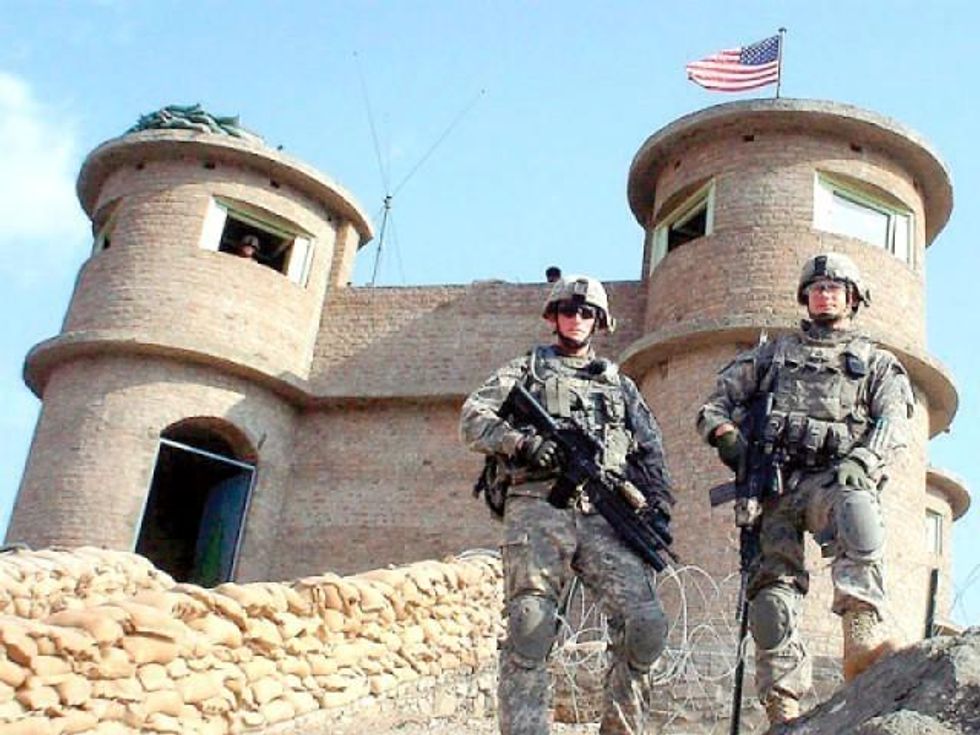In a Christmas Eve ruling that passed with little fanfare, three U.S. Appeals Court Judges gave their legal stamp of approval to indefinite detentions without trial for prisoners of the U.S. military in occupied Afghanistan.
In a 44-page decision, penned by George H.W. Bush appointee Judge Karen Henderson, the habeas corpus petitions filed by five captives at Afghanistan's infamous Bagram military prison--known to some as the "Other Guantanamo"--were rejected.
The petitions were invoking the men's rights to challenge unlawful detention--rights recognized by the U.S. Supreme Court for Guantanamo Bay inmates (though not fully implemented in practice).
The ruling claimed there are "significant differences between Bagram and Guantanamo" because "our forces at Bagram... are actively engaged in a war with a determined enemy."
Yet, as Michael Doyle writing for McClatchy notes, "[O]ne might wonder whether a 'war' has changed into an 'occupation,' and whether that affects the legal analysis."
The court statement expressed concern that "orders issued by judges thousands of miles away would undercut the commanders' authority" and "granting the habeas corpus petitions would distract "from the military offensive abroad to the legal defensive at home."
The report claimed there are many "practical obstacles" to honoring these inmates' constitutional rights.
The decision followed in the path of a 2010 similar ruling, which involved three of the five appellants who report having been captured outside of Afghanistan--in Thailand, Iraq and Pakistan.
The U.S. maintains control over the prison's non-Afghan inmates, many of whom were captured in other countries then transported to this prison, giving the U.S. military broad latitude to violate their rights and hold them indefinitely.
Bagram, which is under an even more stringent media blackout than Guantanamo Bay, is notorious for torture and abuse, including sleep deprivation, beatings, sexual assault, rape and dehumanization.
_____________________

